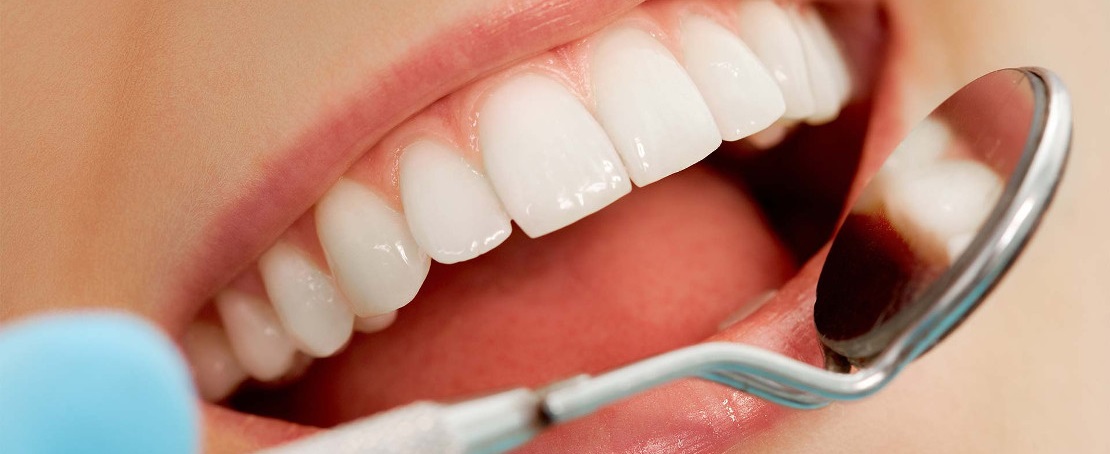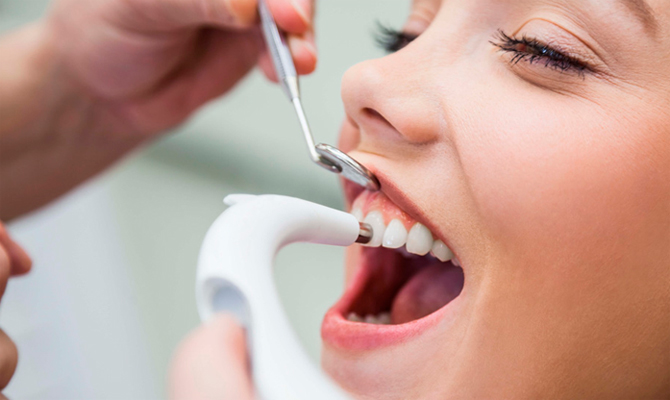Dental Cleaning
You know that brushing and flossing regularly is standard care for your teeth and gums. However, nothing beats professional teeth cleaning twice a year. Regular checkups and a professional tooth cleaning at a reputable office is fundamental to having a bright, white smile. It is a requirement for your overall oral hygiene and well being of your entire body. Proper care of your teeth prevents bad breath, yellowing, discoloration, and plaque deposits which can cause unattractive spots and decay over time.
Insufficient dental care has also been linked to a number of illnesses. Heart disease, diabetes, tooth loss, bone, and various stages of gum disease are all linked to poor dental hygiene. These illnesses are all preventable when caught early during your visit. We can also detect early signs of problems such as fillings required or fractures as well as cavities and sensitivity.

Is Dental Cleaning Necessary?
You brush your teeth every day, so is a professional cleaning necessary. Yes! Because your dentist used professional tools to remove plaque and tartar that you can’t remove at home.
Plaque is a film of sticky bacteria that forms on the surface of your tooth. If left on your teeth- plaque breaks down your enamel. Loss of enamel causes cavities and decay. This can cause pain and even tooth loss.
Tartar forms when plaque hardens on your teeth. Tartar causes gum disease. You can’t brush it off alone. The dentist removes the tartar with professional tools. Tartar not only causes gum problems but overall health issues.
During this process your dentist or dental hygienist checks for cavities and gum disease. You are unlikely to find these issues when brushing alone. They do a periodontal screening to check for gum inflammation and gingivitis.
If you have any query related investment...

What are the Types of Dental Cleaning?
There are 3 types of dental cleanings. They are prophylaxis, scaling and root planning, and gross depriment.
Prophylaxis cleaning is done for patients in good oral health. This removes plaque and stains from your teeth. For best outcomes visit the dentist every 6 months to prevent plaque from hardening and turning into tartar or calculus.
Scaling and root planing removes the hardened plaque to prevent gum disease. It is known as deep cleaning. If you have bleeding gums, swollen gums, or loose teeth this type of procedure is right for you.
A gross depriment is used for patients who have not seen a dentist in a year or more. This process removes build-up plaque that has not been removed for a long time.

What is the Dental Cleaning Procedure?
During a dental cleaning procedure, the dentist starts by examining your teeth. He checks for cavities, plaque, and gum inflammation. This is done with a small mirror to check all angles of your teeth.
Next is scaling. This process involves using a small tool to remove the plaque and tartar from the surface and in between your teeth. The tool looks like a small hook and the process feels like scraping on your teeth.
Then your dentist uses a professional tool to brush your teeth. This tool is different from a regular toothbrush. The electrical tool has a rubber prophy cup and is combined with prophylaxis toothpaste. Then your dentist will floss in between your teeth.
A fluoride treatment completes your visit. Fluoride protects your teeth from cavities. It strengthens your tooth enamel by rebuilding it. It can also reverse early tooth decay.

Is Dental Cleaning Painful?
Dental cleaning is not painful. The process feels like gentle vibrations over your teeth.
The only reason dental cleaning would hurt is if you waited too long in between cleanings. This can cause gum sensitivity, gum disease, or tooth decay.

Can Dental Cleaning Damage Teeth?
A dental cleaning can feel like it is damaging your teeth, but it is not! The scraping may feel like your enamel is being damaged. Scraping removes plaque that a toothbrush cannot tackle. Professional cleaning is the safest way to ensure oral dental health.
Request Your Approintment
You can requst your appointment here or call us for appointment (718) 292 6311
